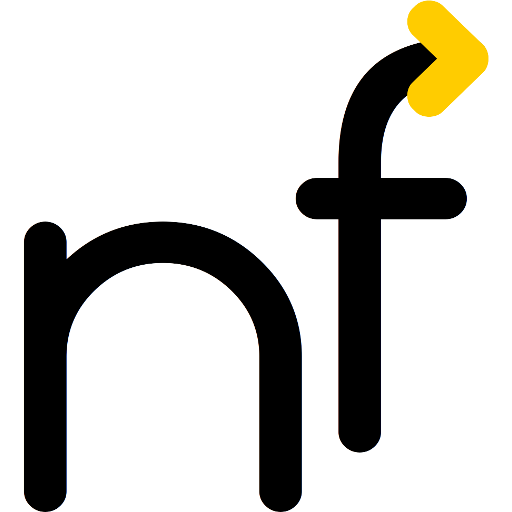Bureaucracy and inefficiency are frowned upon, often rightly so. But they also have their good sides: Properly applied, they ensure reliability and legal certainty.
Blockchain disciples want to “improve” bureaucracy-ridden processes, but achieve the opposite. Two examples:
This text also appeared in German 🇩🇪 : «Ineffizienz ist gut (manchmal)»
Real estate under the rule of law
Buying a home is difficult, lengthy and riddled with fees. Here, probably a much oversimplified process:
- Search house
- Evaluate house (visit etc.)
- Have house valued
- Visit bank
- Negotiate mortgage
- Negotiate sales price and conditions
- Coordinate and allocate time for notary appointment
- Order cashier’s check from bank
- Send contract to notary
- Physically all arrive at the same time to the notary office
- Have the contract read out to you aloud (again)
- Hand sign everything several times
- Hand over keys
- Check house for defects
- And pay incomprehensibly high fees at myriad places
No wonder many want to simplify this process.
Wishful thinking
How easy it would be if everything could all work at the click of a mouse! All properties would be stored as NFTs on the blockchain (as in the Metaverse) and would be traded by means of smart contracts.
Utopia
Most of these bureaucratic and expensive processes would be eliminated, a lot of time and money would be saved, and the state could be made much leaner. We would all be happier and wallow in prosperity.
Reality
Anyone only just cursorily involved in IT security will know:
- a lot of people respond to any mails or click on links without checking them more closely and
- also far too many people do not know how to handle their passwords or other important data.
These are the main reasons why criminal scams like phishing, Trojans, advance fee scams, ransomware, etc. are so lucrative. In the blockchain world, there are additional risks for users and plenty fresh “opportunities” for the bad guys.
Potential new risks:
- Someone sends you a link that you “absolutely” have to click on because otherwise something really bad will happen or you will miss out on something really good.
- “Elli from Windows” (real example from last week) calls you with her Indian accent and supposedly wants to “help” you solve a security problem of your computer.
- Your computer with your blockchain credentials breaks down, gets lost, or is stolen.
In the worst case, in this efficient “brave new blockchain world”, you are rid of your home with a single wrong click. And the next day, the police come and arrest your entire family as squatters. The efficiency gain with which fraud can be conducted will exceed the efficiency gain for normal transactions.
(The list could also include a program error, a typo, an error, or a myriad of other possibilities).
There definitely are advantages to having to appear in person, to be made aware once again of what is actually happening plus the action’s consequences, and perhaps to have someone at your side to warn you if something goes awry. In the end, all parties can be certain that everyone else was aware of the implications of the transaction. This is a very important basis for the trust that a functioning society needs.
Real estate without rule of law
Another frequently heard argument from blockchain advocates: “Yes, it works without blockchain because we are privileged here and corruption is not too rampant. But now imagine being in a country where the rule of law is lacking. Banking the unbanked!”
Agreed, in certain countries it may well be possible to use incentives or threats to “persuade” the head of the land registry to briefly and unobtrusively change the owner of a property. And the victim might have to fight an uphill battle to get the misconduct reverted.
If we have an orphaned blockchain, transactions might be faked as well. We already have thousands and thousands of orphaned cryptocurrencies and countless blockchain projects that have fallen asleep, defunct or abandoned the blockchain. Which Blockchain will still be maintained and reliable in a few decades is definitely written in the stars; because it needs many players with different interests. (And the land register should continue to work reliably for quite a few decades after all).
And add to that the technical shortcomings and false promises of blockchain, NFT, and smart contract already mentioned above.
Let’s assume that in a corrupt country, I switch from the corrupt official land registry to a blockchain-based land registry. But how can I show (a) that I was really the owner before? (b) that the transfer to the blockchain is correct? (c) that nobody will continue to use the old system? But most importantly, what do I do in a country without a stable legal system if (d) someone throws me out of my house by force?
Here, too, we see that the blockchain does not solve any problem. Unlike before, it at least does not automatically create countless new problems at the same time.
For purely digital assets, blockchain-based accounting alone may be relevant. But as soon as real assets and real people are affected, trust and a stable legal system are essential. Even the blockchain does not change that.
So let’s make sure that a trustworthy and broadly supported legal system exists in as many areas of the world as possible. Without that, nothing works, neither with nor without Blockchain. And if we have that trustworthy system, then the blockchain will be unnecessary.
Blockchain ecosystem
More posts in the blockchain ecosystem here, with the latest here:
- The year in review
 This is the time to catch up on what you missed during the year. For some, it is meeting the family. For others, doing snowsports. For even others, it is cuddling up and reading. This is an article for the latter.
This is the time to catch up on what you missed during the year. For some, it is meeting the family. For others, doing snowsports. For even others, it is cuddling up and reading. This is an article for the latter. - NFTs are unethical
 As an avid reader, you know my arguments that neither NFT nor smart contracts live up to their promises, and that the blockchain underneath is also more fragile and has a worse cost-benefit ratio than most believe. Similarly, I also claim the same for the metaverses built on top of them all. And that the… Read more: NFTs are unethical
As an avid reader, you know my arguments that neither NFT nor smart contracts live up to their promises, and that the blockchain underneath is also more fragile and has a worse cost-benefit ratio than most believe. Similarly, I also claim the same for the metaverses built on top of them all. And that the… Read more: NFTs are unethical - Inefficiency is bliss (sometimes)
 Bureaucracy and inefficiency are frowned upon, often rightly so. But they also have their good sides: Properly applied, they ensure reliability and legal certainty. Blockchain disciples want to “improve” bureaucracy-ridden processes, but achieve the opposite. Two examples: This text also appeared in German 🇩🇪 : «Ineffizienz ist gut (manchmal)» Real estate under the rule of… Read more: Inefficiency is bliss (sometimes)
Bureaucracy and inefficiency are frowned upon, often rightly so. But they also have their good sides: Properly applied, they ensure reliability and legal certainty. Blockchain disciples want to “improve” bureaucracy-ridden processes, but achieve the opposite. Two examples: This text also appeared in German 🇩🇪 : «Ineffizienz ist gut (manchmal)» Real estate under the rule of… Read more: Inefficiency is bliss (sometimes) - The FTX crypto exchange and its spider web
 Yesterday, the U.S. Securities and Exchange Commission (SEC) released its indictment against Sam Bankman-Fried. It details the financial entanglements of FTX, Alameda Research and more than a hundred other companies and individuals. We have tried to disentangle these allegations somewhat for you.
Yesterday, the U.S. Securities and Exchange Commission (SEC) released its indictment against Sam Bankman-Fried. It details the financial entanglements of FTX, Alameda Research and more than a hundred other companies and individuals. We have tried to disentangle these allegations somewhat for you. - Web3 for data preservation? (Or is it just another expensive P2P?)
 Drew Austin raises an important question in Wired: How should we deal with our accumulated personal data? How can we get from randomly hoarding to selection and preservation? And why does his proposed solution of Web3 not work out? A few analytical thoughts.
Drew Austin raises an important question in Wired: How should we deal with our accumulated personal data? How can we get from randomly hoarding to selection and preservation? And why does his proposed solution of Web3 not work out? A few analytical thoughts. - Rejuvenation for Pro Senectute through NFT and Metaverse?
 Pro Senectute beider Basel, a foundation to help the elderly around Basel, launched its NFT project last week and already informed about its Metaverse commitment beforehand. According to a media release, Michael Harr, managing director of the 15-million Basel-based company, wants to use the purchase of these “properties” in a “central location” in two online… Read more: Rejuvenation for Pro Senectute through NFT and Metaverse?
Pro Senectute beider Basel, a foundation to help the elderly around Basel, launched its NFT project last week and already informed about its Metaverse commitment beforehand. According to a media release, Michael Harr, managing director of the 15-million Basel-based company, wants to use the purchase of these “properties” in a “central location” in two online… Read more: Rejuvenation for Pro Senectute through NFT and Metaverse? - What is an NFT, behind the scenes?
 “NFT” is currently on everyone’s lips again, and not only because of Pro Senectute. But what is actually behind the full-bodied promises of the NFT advocates? For more insights on NFTs and the entire blockchain ecosystem, click here. You can also read this text in German 🇩🇪. “NFT” stands for “Non-Fungible Token” and is being… Read more: What is an NFT, behind the scenes?
“NFT” is currently on everyone’s lips again, and not only because of Pro Senectute. But what is actually behind the full-bodied promises of the NFT advocates? For more insights on NFTs and the entire blockchain ecosystem, click here. You can also read this text in German 🇩🇪. “NFT” stands for “Non-Fungible Token” and is being… Read more: What is an NFT, behind the scenes? - Offline digital cash?The question of using digital money in the event of a network outage comes up again and again. Here is an overview of the options and their pros and cons.
- The NFT Danger Zone
 Susanna Petrin closes her NFT experiment with a dystopia of life after we destroyed our environment: Admiring our NFTs while strolling through the metaverse. I hope we can avert both.
Susanna Petrin closes her NFT experiment with a dystopia of life after we destroyed our environment: Admiring our NFTs while strolling through the metaverse. I hope we can avert both. - A business-driven blockchain evaluation flow chart
 Yesterday, Rene Jan Veldwijk posted a blockchain decision flowchart he had previously used in a presentation.
Yesterday, Rene Jan Veldwijk posted a blockchain decision flowchart he had previously used in a presentation. - Blockchain in a nutshell
 People often try to claim blockchain use cases without much deliberation. Here is a condensed, quotable version of «Hitchhiker’s Guide to the Blockchain» and «Data lifecycle questions, not only for Blockchains».
People often try to claim blockchain use cases without much deliberation. Here is a condensed, quotable version of «Hitchhiker’s Guide to the Blockchain» and «Data lifecycle questions, not only for Blockchains». - Web3 is just expensive P2PWeb3 claims to be the only way to save us from commercial entities defining what we can see and what not. Yet, it does exactly this: It results in commercialized entities defining what we can see and what not.



